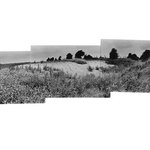Art & Art History
Voices: Deborah Bright

Deborah Bright
Gallery 400 Lecture Room
400 South Peoria Street
Deborah Bright addresses her practices as both a visual artist and critic who is trying to map out new ways of thinking about landscape photography in the era of global markets and transitional labor. The dominant conceptual models for picturing landscape in the Euro-American photographic canon evolved from nineteenth-century imperialism, romanticism, and urbanism: the topographic recording of landscapes for instrumental purposes (e.g. resource exploration, military mapping, transportation, etc.), and the representation of “nature” as the manifestation of transcendent forces. Over the 150 years since its invention, photography has played a prominent role in the reinforcement of these landscape ideals. However, the immense changes of scale (from natural to global) in our relationship to what is now termed “the environment” has necessitated a concomitant rethinking of ways to effectively represent these dramatic new social and spatial arrangements and their effects. Bright discusses several models that have evolved among both artists and theorists for addressing this issue.
Bright is currently a professor of photography and art history at the Rhode Island School of Design. She earned an MFA from the University of Chicago.